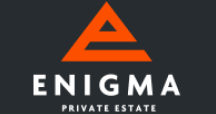What to look for when buying a fixer upper
Category News
Where most homebuyers want to purchase a home in mint condition (just turn the key and move straight in), the savvy bargain hunter who wants to make a tidy profit will consider buying a "fixer-upper". "A good definition of a fixer-upper is a home that has been allowed to deteriorate below neighbourhood standards," says Rhys Dyer, CEO of ooba Home Loans, South Africa's largest comparison service. "One of the great aspects about buying a fixer-upper is that the purchase is not contingent on the temperature of the property market," he adds. "Whether hot, cold or neutral - any time is a good time to buy a fixer-upper." If you're considering investing in a home that needs TLC, here some of the qualities you should be looking for: You don't want a property that is going to require too much investment from you. Look for properties that can be significantly improved with cosmetic changes like paint touch ups, drywall repairs, floor refinishing - which generally cost much less than what they return in market value. Updating the kitchen, which is the heart of the home, can be especially effective in raising its market value. Bathrooms can also make for potentially lucrative improvements. "When choosing a property to invest in, total up the estimated expenses for making repairs and add this number to the cost of the property. Then, be sure that you will be able to make a comfortable profit after all of these costs," Dyer advises. Homes can be repaired and made to be worth much, much more than their current value, but the location isn't something that can be changed. Along with looking for a house you can restore to make it more valuable, you should also pay attention to the suburb it is in. Dyer advises. "For the best returns, look for a safe neighbourhood with reasonably high property values. If, however, you do choose to invest in a fixer-upper that isn't in the best of areas, you should keep this in mind when determining how much to spend on improvements." Some defects are repairable, while other forms of structural damage are extremely difficult to repair. Be sure to hire a professional contractor to inspect the home, so you can be aware of any structural defects. You can then determine whether it's worth the investment. Elements such as the plumbing, electrical and water system will be very tricky to deal with, while broken windows and deteriorating paint can be easily fixed. Fixing up the home will increase the value by default, but it doesn't hurt to research the market and see whether prices in the area are likely to be going up or down. Buying a fixer-upper in an area where house prices are likely to rise lends more financial potential to your investment. Additionally, renovating a home in a luxury residential district means you could improve its value while still keeping its price lower than the average cost in the district. One of the most challenging aspects of purchasing a fixer-upper is paying for the renovation, says Dyer. "Understandably, most people don't have much extra cash after paying a deposit and transfer costs, so coming up with additional money to cover repairs or remodelling can be difficult." One option is to calculate the anticipated cost of these renovations and build them into your savings budget. But another option that you may not be aware of is, to apply for a larger than required bond, creating a surplus amount that you can access for the desired renovation. "If your home loan lender offers this option, these loans can be borrowed against the home's value after the work is finished, subject to credit approval" says Dyer. ooba Home Loans will take care of all aspects of the application to ensure your loan is processed quickly, allowing you to focus on paint swatches and switch plates - all the things that will help turn a drab and dreary fixer-upper into your own personal palace, and, with any luck, make a nice profit in the process. If you have your eye on a property with potential to make the ideal fixer-upper, contact one of our professional Property Practitioners to assist you in determining what you can afford and help you find a property to turn into your dream home. Source: Ooba Home LoansLooking for a bargain? Purchase a home that has deteriorated below neighbourhood standards, and make renovations that will improve its value.

Article summary
Finding the ideal fixer-upper
1. A property that requires mostly cosmetic improvements
2. The location
3. Properties without serious defects
4. Properties that are likely to rise in market value
Prepare your finances for a fixer-upper
Author: Ooba Homeloans














